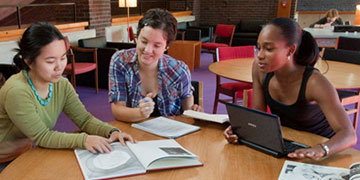To access this work you must either be on the Smith College campus OR have valid Smith login credentials.
On Campus users: To access this work if you are on campus please Select the Download button.
Off Campus users: To access this work from off campus, please select the Off-Campus button and enter your Smith username and password when prompted.
Non-Smith users: You may request this item through Interlibrary Loan at your own library.
Publication Date
2009-5
Document Type
Capstone
Study Type
EVS 300
Department
Environmental Science and Policy
Abstract
The Smith College community is committed to addressing issues of global warming by neutralizing its greenhouse gas emissions and becoming a carbon neutral campus. With energy prices on the rise, implementing new products, services, and technologies preserves resources while reducing energy costs. One such project involves electricity use by walk-in coolers and freezers on campus.
National Resource Management (NRM), a company at the forefront of energy saving technologies for refrigeration, has designed three devises, ‘Anti-Sweat Door Heater Control’, ‘Electronically Commutated motors’, and ‘CoolTrol’, which help reduce energy use. Additionally, NRM works with National Grid, the electric company that supplies Smith College, to offer rebate programs. A consultant from NRM visited the campus and completed an energy audit of thirteen locations that housed walk-in coolers and/or freezers. The data gathered was analyzed to form an energy conservation benefit report as well as a consolidated refrigeration proposal that calculated how much energy could be saved upon installation of these products. Furthermore, calculations were provided the explained the initial costs, rebate incentives, and net costs upon implementation. Results showed a 22% decrease in electrical use equaling a savings of $17,716 per year. Additionally, National Grid will pay 44% of the installation costs, reducing the payback period to 2.95 years.
Smith might be headed toward reaching its goal of becoming carbon neutral while saving money in the process. Additionally, Smith will uphold its prestigious name by setting an example for its students and the community about being environmentally conscience. This could encourage more to look to innovative technologies and services to help preserve our valuable resources, reduce our greenhouse gas emissions, and become a more sustainable community.
Rights
© 2009; Kerry Valentine
Recommended Citation
Valentine, Kerry, "Smith 'Walks-In' to Energy Savings: A Look at How Installing New Refrigeration Technology Can Save Thousands a Year" (2009). Capstone, Smith College, Northampton, MA.
https://scholarworks.smith.edu/other_projects/144
Smith Only:
Off Campus Download


